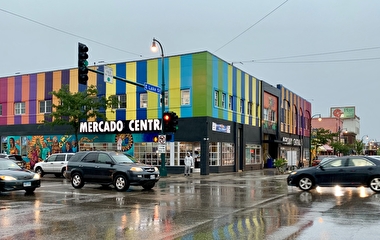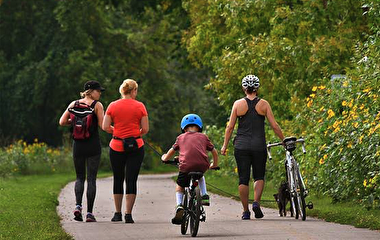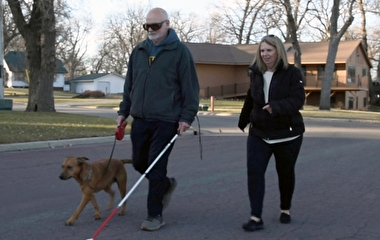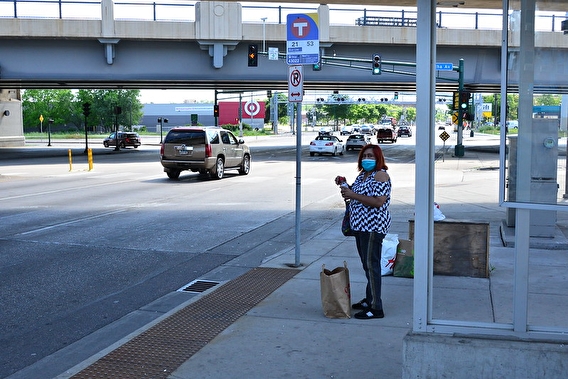
Transportation research is often about numbers. In a recent study, however, U of M researchers looked beyond the data to hear the transportation experiences of real people from underserved communities in Minnesota.
Their project, led by Professor Yingling Fan of the Humphrey School of Public Affairs, was part of the Minnesota Department of Transportation (MnDOT) Advancing Transportation Equity initiative.
“Our new definition of equity acknowledges that the transportation system and agency decisions have underserved, excluded, harmed, and overburdened some communities,” said Lisa Austin, transportation program supervisor of MnDOT’s Center for Community Connections. “The experiences collected through this research are powerful and often heart-wrenching stories of how it feels when you can’t get to the places you need to go.”
Austin, the study’s MnDOT technical liaison, kicked off the Our Transportation, Our Lives event on May 1 in Minneapolis. Six Humphrey School graduate students, each focused on a specific underserved community, presented preliminary findings from the project.
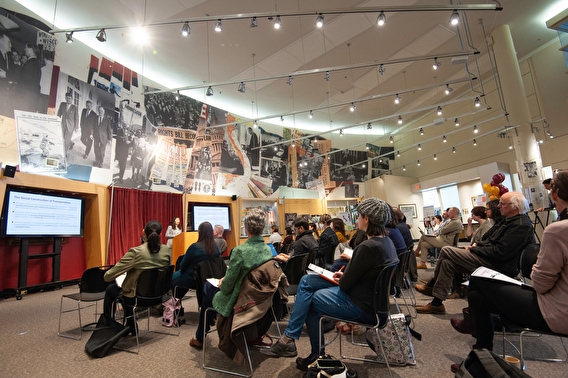
Fan began by describing a new way to conceptualize transportation: as a socially constructed entity. “Transportation manifests the societal structures and cultural assumptions that are constructed by the dominant race or culture,” she said. “Therefore, it’s critical to make the perspective of socially marginalized groups—rather than those of the dominant race or culture—the central axis.”
In many underserved communities, Fan continued, the embedded power structure in transportation inhibits people from living a good life—whether that means getting to a job, grocery store, park, or spiritual activity. “Our project illustrates the role transportation plays in people’s lives,” she said.
While researching the transportation experiences of Black community members, Samuel Benda saw this reality firsthand. “Lack of transportation to get to employment was an issue for almost all the participants I spoke with,” said Benda, a Humphrey School Master of Public Policy student. “Losing or dropping a job because they couldn’t get there often came at a time in their lives when they really needed a job that pays well.”
For example, a young Black woman he interviewed described her experience waiting for the bus after a 16-hour shift in the winter: “I was waiting out for the bus and the bus didn’t come for an hour, and it was freezing cold outside and there was snow everywhere and I was so tired.”
The five additional underserved groups and student presenters were Hmong Americans (Gillian Greenberg), single mothers (Maxwell Wilson), immigrants (Christina Luna), people living with HIV (Joseph Amrhein), and Native Americans (Niyati Panchal).
By exploring the experiences of community members in each group, researchers were able to pull out shared challenges as well as the unique obstacles and needs for each community. For example, while safety—or lack thereof—was a shared experience for these groups, the need to make multiple stops (known as trip chaining) was important for single mothers, driving was an important form of caregiving and connection in the Hmong community, and access to healthy food was a challenge for White Earth Reservation tribal members.
Following the presentations on the selected communities, Kelly Her with the Hmong American Partnership and Ezra Kenyanya with the Jeremiah Program (which serves single mothers) discussed their organizations’ participation in the research.
The final research report, planned for publication this summer, will include findings and recommendations for four additional communities: Latinx, people with disabilities, the Fergus Falls (rural) community, and single fathers.
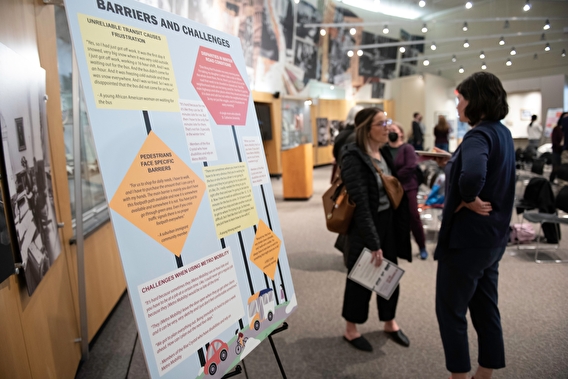
MnDOT will use the recommendations and findings from the project in its ongoing efforts to advance transportation equity. The findings are already being used in related training, Austin said.
The study—Improving Transportation Equity for All by Centering the Margins: The Transportation Experience of Underserved Communities—was sponsored by MnDOT and the Minnesota Local Road Research Board; data collection ran from November 2022 to February 2023. The project co-investigator was Ying Song, associate professor in the Department of Geography, Environment & Science.
Writer: Megan Tsai
